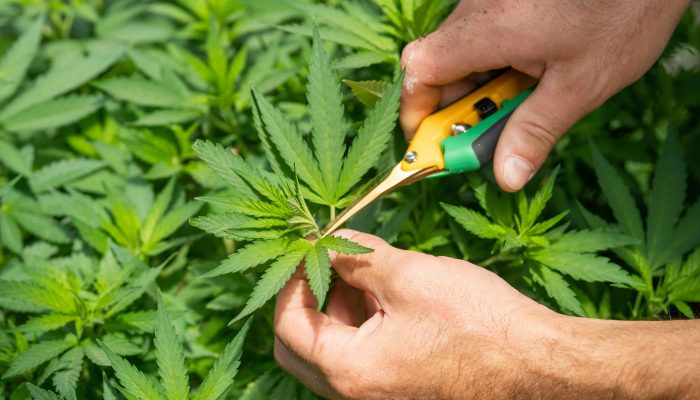As of today, several varieties of intoxicating hemp products are illegal to sell or produce in the state of South Dakota.
That doesn’t necessarily put them out of reach for South Dakotans.
It also doesn’t mean death for the market in alternative intoxicants that’s emerged across South Dakota and the nation in part thanks to a loophole in the 2018 federal farm bill, which legalized hemp.
Even if all the products now banned through the actions of the South Dakota Legislature last winter are pulled from store shelves in the state – an open question as the law takes effect – buyers can purchase them online with little fear of repercussion, as their possession isn’t prohibited through the new law.
The law targets synthetically produced delta-8, delta-9, delta-10, THC-O, THC-P and HHC. Each are chemical cousins of delta-9 tetrahydrocannabinol, or THC, the high-inducing compound in cannabis flowers.
Sellers or producers of the hemp-derived products could be charged with a class 2 misdemeanor – the lowest-level crime in the state, punishable by up to 30 days in jail.
But the testing necessary to prove any product violates the law has limits and requires wait times for local law enforcement. The state’s largest policing agencies have no immediate plans to prioritize enforcement.
That puts the onus on retailers to follow a law that would cut into revenues or force them out of business.
A federal lawsuit from Pierre-based Hemp Quarters 605 is also in play. The company attempted to block the new law as an unconstitutional overreach that interferes with the interstate commerce permitted under the federal farm bill. But U.S. District Judge Eric Schulte declined to issue a preliminary injunction.
Even without the injunction, though, the company’s lawsuit will proceed and could eventually upend the law.
Caleb Rose of Rapid City owns Black Hills Vapors and recently founded a trade group called South Dakota Retailers for Better Alternatives to advocate for stores that sell hemp-derived products.
Rose said he planned to pull the targeted products from the shelves of his West River stores, but the lack of certainty could mean other retailers opt to ignore the new law.
“I think everybody in town and everybody in the state is going to have to make their own calls and consult their lawyers on what they want to do,” Rose said.
Testing complications
Questions of enforcement are tied to product testing. A can of gummies on a retailer’s shelf might say “delta-8,” but prosecutors would have to prove the product is illegal beyond a reasonable doubt.
Doing that requires testing, which for the newly illegal substances involves a waiting period for local officers and prosecutors. There are field tests for some felony-level narcotics like methamphetamine, and some agencies can test for the presence of the active ingredient in traditional cannabis, but there are no such tests for products like hemp-derived gummies or delta-8 vape pens. For those, police would rely on the state Department of Health lab.
That lab can distinguish between delta-8, delta-9 and delta-10 THC, according to spokesperson Tia Kafka.
You can read the full article at South Dakota Searchlight.

